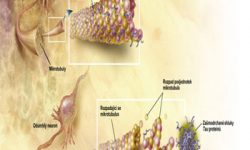Dehydration in Adults – Get Your Facts Straight
Dehydration occurs when more fluids are coming out of your body than are entering it. Although, research has shown that children are more prone to getting dehydrated in warm season, there is no deny the fact that adults especially people on the wrong side of 60 are also exposed to this threat.

Causes of Dehydration in Adults
While heat exposure comes across as one of the most common causes of dehydration in people of all age groups, there are several other instigators of dehydration among adults. Fever, vomiting, diarrhea, diabetes, excessive urination, excessive physical labor/exercise, inability to intake fluids and lack of availability of safe and clean drinking water are also known to cause dehydration in adults.
There are certain injuries and infections that can also lead to dehydration. For instance, burns victims, people suffering from sore mouths and patients of skin infections are also liable to lose body fluids significantly which can cause dehydration to them.
Symptoms of Dehydration
Adults who get dehydrated are likely to feel very thirsty with dryness of mouth and swollen tongue. These symptoms are telltale signs that a person is in dire need of consuming water of fluids to avoid a complete breakdown due to lack of energy. Nausea or lethargy is another major symptom which every dehydrated person has to experience. It is at this stage that the person in question should be given immediate supply of water and shelter from the sun.
Inability to bring immediate help to such a person can lead to appearance of advanced symptoms of dehydration which include palpitations, decreased urination, lack of sweating and unconsciousness. People living in areas where temperatures can significantly rise during summer and people of age groups who are more susceptible to dehydration should also regularly monitor the color of urine as a yellow hue is also a symptom of dehydration.
Treatment of Dehydration
Adults who notice experiencing symptoms of dehydration such as weight loss, dizziness, diarrhea, weakness and vomiting should immediately call for medical attention. Doctors may perform body cooling procedures to decrease the temperature of the patient’s body. Anti-diarrhea or anti-bacterial medicine may also be prescribed to put address the underlying issue that causing excessive loss of body fluids. Once the patient stops vomiting and diarrhea becomes passive, this shows that fluid replacement process has initiated. Medicine such as ibuprofen also comes very handy in treating patients suffering from dehydration.
All in all, there are various preventive measures and home remedies that can be adopted to nullify the chances of dehydration. Nevertheless, even the mildest symptoms of dehydration should be taken seriously and appropriate action should be taken on a timely basis.
Newsletter
Get our Tips and Tricks to your Inbox



